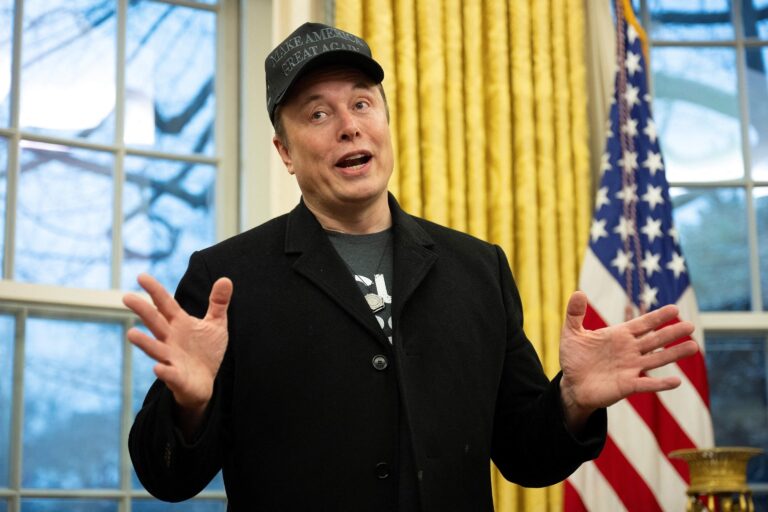Elon MuskŌĆÖs Expanding Political Influence: Navigating Wealth, Power, and Policy
Elon MuskŌĆÖs Emergence as a Key Political Influencer
Elon MuskŌĆÖs journey from a visionary entrepreneur to a formidable political influencer marks a significant shift in the power dynamics of Washington, D.C. Initially celebrated for revolutionizing electric vehicles and space travel, Musk now wields his immense wealth and media influence to shape legislative priorities and regulatory policies. His targeted lobbying campaignsŌĆöranging from advocating for relaxed environmental regulations to pushing for reforms in space governanceŌĆöreflect a strategic effort to embed his business interests within the political framework. This evolution positions Musk as a powerful actor who challenges the traditional roles of lobbyists and interest groups.
Several key elements underpin MuskŌĆÖs growing political clout:
- Robust Financial Resources: Substantial political donations and investments in pivotal elections amplify his influence.
- Media and Public Engagement: His active social media presence shapes public discourse, often preempting political responses.
- Cross-Industry Dominance: Leadership in automotive, aerospace, and renewable energy sectors provides a broad platform for policy negotiation.
- Strategic Relationships: Close ties with lawmakers and regulatory officials facilitate his agenda-setting capabilities.
| Year | Political Milestone | Resulting Impact |
|---|---|---|
| 2019 | Support for Space Force Legislation | Secured advantageous contracts for SpaceX |
| 2021 | Lobbying for Electric Vehicle Tax Incentives | Extended federal subsidies for EV buyers |
| 2024 | Participation in AI Policy Discussions | Influenced bipartisan AI regulatory frameworks |
How MuskŌĆÖs Wealth Shapes Legislation and Policy
The vast fortune amassed by Elon Musk has become a potent tool in influencing legislation that intersects with his business domains. His companiesŌĆöTesla, SpaceX, and othersŌĆöactively engage in lobbying efforts aimed at reshaping regulatory landscapes to favor innovation and expansion. These efforts have led to significant shifts in environmental policies, space privatization laws, and autonomous vehicle regulations. MuskŌĆÖs direct dialogues with policymakers blend entrepreneurial foresight with political maneuvering, amplifying his impact on national policy.
Key policy areas where MuskŌĆÖs influence is particularly pronounced include:
- Renewable Energy Policies: Championing tax credits and subsidies that accelerate clean energy adoption.
- Space Industry Deregulation: Advocating for streamlined launch and orbital operation rules to boost private sector participation.
- Autonomous Driving Standards: Shaping safety and operational guidelines to accommodate TeslaŌĆÖs AI-driven vehicles.
| Policy Domain | Legislative Outcome | Associated Musk Entities |
|---|---|---|
| Clean Energy | Expanded EV tax credits and incentives | Tesla Lobby Group, Musk Foundation |
| Space Exploration | Relaxed orbital launch regulations | SpaceX Advocacy Network |
| Autonomous Vehicles | New AI vehicle safety standards | Future Mobility Coalition |
Corporate Governance Challenges and Accountability in the Musk Era
The intersection of Elon MuskŌĆÖs financial power and political engagement presents complex challenges for corporate governance. His leadership approachŌĆömarked by bold innovation and direct political involvementŌĆöblurs the lines between corporate objectives and public policy goals. This convergence raises pressing questions about transparency, executive responsibility, and the mechanisms through which investors, regulators, and the public can hold decision-makers accountable for actions with significant political ramifications.
- Increased Transparency Expectations: Stakeholders demand comprehensive disclosures regarding political lobbying and advocacy activities.
- Governance Framework Adaptations: Boards are urged to integrate political risk and ethical considerations into strategic planning.
- Balancing Profit and Public Good: Ongoing debates focus on aligning shareholder interests with broader societal impacts.
| Governance Aspect | Challenge | Accountability Measure |
|---|---|---|
| Political Lobbying | Potential conflicts of interest | Mandatory lobbying disclosures |
| Executive Influence | Blurring public-private boundaries | Enforcement of fiduciary duties |
| Shareholder Expectations | Conflicting views on social responsibility | Enhanced stakeholder engagement |
These governance challenges underscore the necessity for evolving corporate oversight models that can effectively manage the intertwined pressures of wealth, political influence, and public accountability in todayŌĆÖs complex environment.
Balancing Innovation with Effective Regulatory Oversight
Striking the right balance between fostering technological breakthroughs and ensuring robust regulatory safeguards requires a nuanced, collaborative approach. Visionaries like Musk highlight the importance of regulatory frameworks that are both adaptive and forward-looking. Policymakers must deepen their understanding of emerging technologies and anticipate their societal implications to craft effective regulations. Key strategies facilitating this balance include proactive dialogue, transparent data exchange, and experimental regulatory environments.
- Regulatory Sandboxes: Controlled environments where new technologies can be tested with relaxed rules to evaluate risks and benefits.
- Multi-Stakeholder Forums: Platforms that bring together industry leaders, regulators, and civil society to discuss regulatory challenges and solutions.
- Ongoing Regulatory Education: Programs designed to enhance regulatorsŌĆÖ expertise in cutting-edge technologies and ethical considerations.
| Strategy | Objective | Illustrative Example |
|---|---|---|
| Regulatory Sandboxes | Enable safe innovation testing | UK Financial Conduct Authority fintech pilots |
| Stakeholder Forums | Facilitate open dialogue and feedback | Washington tech policy roundtables |
| Continuous Learning | Build regulatory expertise | AI ethics workshops for policymakers |
Final Reflections on the Musk Effect
Elon MuskŌĆÖs expanding footprint at the nexus of wealth, political influence, and innovation epitomizes a transformative era in American governance. His ability to shape policy debates and regulatory outcomesŌĆöfrom Capitol Hill to international arenasŌĆöillustrates the growing power of individual billionaires in public affairs. Whether this trend heralds a new model of corporate engagement in democracy or raises concerns about concentrated influence, the Musk phenomenon is undeniably redefining the interplay between money, power, and policy. The coming years will be pivotal in determining how this evolving dynamic influences the future of governance, economic power, and societal progress in the United States.







